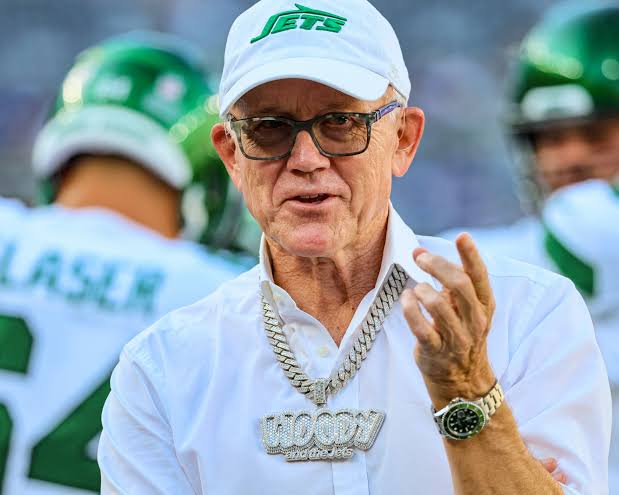In recent years, the role of coaching in the NFL has shifted dramatically. Once upon a time, coaches were expected not only to win games but also to dedicate significant effort to developing players. The emphasis on nurturing young talent was seen as essential to building sustainable success. However, the relentless pressure to deliver immediate results has pushed many coaching staffs to deprioritize player development in favor of short-term victories. This trend has left promising young players by the wayside, unable to grow due to a lack of opportunity and guidance. The situation with New York Jets’ rookie Malachi Corley is a prime example of this concerning shift.
Back in April, the Jets selected Corley with the first pick of the third round. The move was accompanied by enthusiastic praise from within the organization, as team officials highlighted his potential and hinted at big plans for him in the future. Corley was hailed as a dynamic receiver with untapped skills, someone who could make a difference in their offense. Yet, as the season unfolded, that excitement failed to translate into meaningful action on the field. Despite being a healthy option, Corley has been inactive for roughly a third of the season and has managed just five touches in the games he has played. For a rookie with so much promise, these numbers are alarmingly low.
The Jets have been clear in their reasoning for Corley’s limited involvement: they believe he isn’t ready to take on meaningful NFL snaps. Offensive coordinator Todd Downing was candid in his assessment, explaining, “Our priority is winning games, not evaluation. We are going to do what we feel puts us in the best position to compete and win games.” This comment reflects a growing trend in the NFL where the immediate pursuit of victories takes precedence over long-term planning and player growth. Downing went on to elaborate, pointing out that Corley’s lack of development as a route-runner has made it difficult for him to earn a spot in the rotation. Furthermore, Corley is part of a position group filled with experienced veterans like Allen Lazard, who are seen as more polished and reliable options.
Adding to the challenge is Corley’s absence from special teams, an area where many young players cut their teeth and earn playing time. Players like Xavier Gipson, who contribute on special teams, have been prioritized, leaving Corley on the outside looking in. From the Jets’ perspective, the decision seems logical: they are focused on putting the most experienced and versatile players on the field to maximize their chances of winning. However, critics argue that this short-term thinking is shortsighted and damaging, especially for a team like the Jets, whose record sits at a disappointing 4-11.
Given the team’s struggles, the rationale for sidelining Corley becomes even harder to justify. If winning truly were the sole priority, the coaching staff could have taken steps to hold underperforming veterans accountable earlier in the season. Instead, they have clung to the belief that relying on experience is the safest path forward, even as their playoff hopes have long since evaporated. At this point in the season, the logical move would be to shift focus toward developing younger players, giving them opportunities to gain valuable experience in a live game setting. For a player like Corley, this could be the difference between becoming a reliable contributor and stagnating on the sidelines.
The Jets’ reluctance to embrace this developmental approach has drawn criticism from fans and analysts alike. Many view their handling of Corley as emblematic of deeper issues within the organization. NFL teams that fail to nurture young talent often find themselves stuck in a cycle of mediocrity, unable to break free from repeated rebuilds. For the Jets, who are potentially on the brink of their fifth rebuild in a decade, this pattern is all too familiar.
Downing’s comments on Corley’s future attempt to strike an optimistic tone. “Malachi has got a bright future in this league,” he said. “He’s got a skill set that will eventually help teams win football games. Right now, though, he’s fighting to get scraps from Davante [Adams], Garrett [Wilson], and Allen [Lazard]. I think he’s learning to be a pro.” While Downing’s words suggest confidence in Corley’s potential, they do little to address the broader issue at hand: a coaching staff’s responsibility to actively foster that potential.
The lack of attention to player development is a significant reason why struggling teams remain in the basement of the NFL standings. For a franchise like the Jets, the refusal to prioritize the growth of players like Corley raises serious questions about their long-term vision. With the season effectively over and a potential organizational overhaul on the horizon, the remaining games could serve as a valuable proving ground for younger players. Instead, the Jets appear intent on maintaining the status quo, relying on veterans with little to gain from the final stretch of a lost season.
The Jets’ approach has led many to question the priorities of the coaching staff. By continuing to sideline younger players like Corley in favor of veterans, they are missing an opportunity to evaluate and develop talent that could shape their future. This decision not only impacts Corley but also reflects poorly on an organization that has struggled to break free from a culture of mediocrity. As the season winds down, the Jets must confront the reality that player development is not just a secondary responsibility but a crucial component of building a successful franchise. Whether they take that lesson to heart remains to be seen, but for Malachi Corley, the hope is that brighter days lie ahead—if only the Jets can find the foresight to make them possible.
